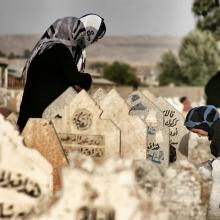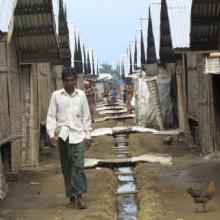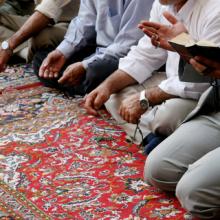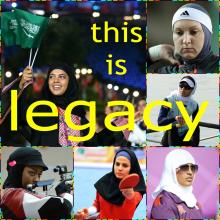saudi arabia
MARCH 25 marks the sixth anniversary of the start of the brutal and tragic war in Yemen. The Saudi-led coalition’s offensive operations, code-named Operation Decisive Storm, began with airstrikes and a naval blockade against Houthi rebels with the goal of restoring Yemen’s ousted government. With early and extensive U.S. military support, this war has created what many consider the most severe humanitarian crisis on the planet.
During his presidential campaign, Joe Biden promised a policy reset on Yemen. “I would end U.S. support for the disastrous Saudi-led war in Yemen and order a reassessment of our relationship with Saudi Arabia,” Biden said. “It is past time to restore a sense of balance, perspective, and fidelity to our values in our relationships in the Middle East. President Trump has issued Saudi Arabia a dangerous blank check. Saudi Arabia has used it to extend a war in Yemen that has created the world’s worst humanitarian crisis, pursue reckless foreign policy fights, and repress its own people.”
Biden’s promise offers hope to those committed to peace, but his administration must do much more than help pick up the pieces. Yemen needs humanitarian aid, an end to the blockade, and good faith diplomacy.
Pope Francis is hoping to persuade a country enmeshed in a regional war that he has condemned to give Catholics more freedom when he becomes the first pontiff to set foot on the Arabian Peninsula.
THE TRUMP administration, members of Congress, and many media pundits often speak and act as if the United States must choose between acting in its own interest and respecting deeper moral values. That’s a false choice.
Events on the world stage in recent months have offered abundant reminders that the United States’ cozy and corrupt relationship with Saudi Arabia and its tyrannical royal family is a bipartisan moral failure with real costs in human lives. In the name of perceived national interests, the U.S. has long engaged in an amoral realpolitik throughout the world, especially regarding the Middle East. In 2019, this includes Trump’s defiant support for Saudi Arabia, despite rising dissension in his own political party.
In recent months, some in Congress and throughout civil society are more openly questioning the U.S. relationship with the Saudi Arabian leadership, for two major reasons.
The first is the four-year-old military campaign in Yemen led by Saudi Arabia and materially supported by the U.S. that has created the world’s worst ongoing humanitarian crisis. By November, the war had caused—by Save the Children’s estimate—85,000 Yemeni children to starve to death. Sufficient food is arriving to Yemen, but the economic devastation caused by the Saudi-led campaign makes it impossible for many parents to buy enough food to feed their children, and conditions on the ground make distributing emergency food aid extremely difficult.
As recently as 2013, dozens of women uploaded videos online of themselves behind the wheel of a car during a campaign launched by Saudi rights activists. Some videos showed families and male drivers giving women a “thumbs-ups,” suggesting many were ready for the change.
While women in other Muslim countries drove freely, the kingdom’s blanket ban attracted negative publicity. Neither Islamic law nor Saudi traffic law explicitly prohibited women from driving, but they were not issued licenses and were detained if they attempted to drive.
Trump’s trip, then, is the epitome of this unique, sales-based approach that characterized his campaign and administration — a move toward achieving personal, political, and even religious victory, simultaneously. But to what end? The only clear motivation to which I can point is the uncannily vague promise to “Make America Great Again.”
President Trump will deliver an “inspiring yet direct” speech on the need to confront radical ideologies during his upcoming trip to Saudi Arabia.
The speech will come during an afternoon lunch with leaders of more than 50 countries with mostly Muslim populations, White House national security adviser H.R. McMaster announced on May 16.
According to CNN, the decision to nominate Gingrich has already been made, but the announcement is pending approval from the Office of Government Ethics. Earlier this year, Newt Gingrich confirmed his wife was in the running for the job. The White House declined comment on May 15.
Safety is defined in the nineteenth chapter of Leviticus as abiding in God’s sense of justice —“not be partial to the poor or defer to the great: with justice you shall judge your neighbor.” Justice is love and love is behaving out of fairness to all — even those we see as a risk. We cannot expect to be in safety unless we treat others as we wish them to treat us.
LONDON — Eight of the 47 countries that hold seats on the United Nations Human Rights Council imprisoned people in 2013 under laws that restrict religious freedom, according to a new report from Human Rights Without Frontiers International, a nonprofit advocacy organization based in Belgium.
The eight UNHRC member states on the group’s second annual World Freedom of Religion or Belief Prisoners List, released Monday, are Morocco, China, and Saudi Arabia (whose new three-year terms begin Wednesday), and current members India, Indonesia, Kazakhstan, Libya, and South Korea.
Hundreds of believers and atheists were imprisoned in these and 16 other countries for exercising religious freedom or freedom of expression rights related to religious issues, according to the report. These rights include the freedom to change religions, share beliefs, object to military service on conscientious grounds, worship, assemble, and associate freely. Violations related to religious defamation and blasphemy are also included in the report.
At the end of a three-day tour, the Saudi-based Organization of Islamic Cooperation told Buddhist-majority Myanmar to repeal “laws restricting fundamental freedoms” after more than 240 Muslims were killed by Buddhist mobs during the past year.
Before the OIC delegates left Myanmar on Saturday, they visited minority ethnic Rohingya Muslims who fled the violence and are now living in squalid camps along the border with Bangladesh in Myanmar’s Arakan state, also known as Rakhine.
Headed by Secretary General Ekmeleddin Ihsanoglu, the OIC delegation called on the government to continue legal reforms, The New Light of Myanmar newspaper reported.
The annual pilgrimage to Mecca, known as the hajj, presents a gantlet of health challenges. This year’s pilgrimage, which falls Oct. 13-18, is no different.
Of particular concern is the Middle East Respiratory Syndrome coronavirus, which was first reported in Saudi Arabia last year. At least 120 cases have been reported in the country, including 49 deaths, according to the World Health Organization and Saudi officials.
Presidents, government ministers and religious leaders from around the world gathered in Vienna on Monday Nov. 26 for the gala launch of the King Abdullah Center for Interreligious and Intercultural Dialogue.
While Austria and Spain joined Saudi Arabia in establishing the center, it originated in a bold initiative by Saudi King Abdullah. Some years ago, the king convened representatives from all segments of the Muslim world in Mecca to support his call for Islam to engage the other world religions in addressing the social, scientific, and global challenges of our times.
He followed this up with an interfaith conference in Madrid co-hosted with King Juan Carlos of Spain and subsequently brought his initiative to the United Nations in 2008, hosting a gathering of world political leaders that included Israeli President Shimon Peres.
The variation in the proper way to pray is one among several differences that exist between Shiites, who make up about 15 percent of Muslims globally and in America, and the majority of Sunnis. Until recently, those differences mattered little in the United States, where the two groups bonded as Muslim minorities and prayed in the same mosques.
"There weren't enough of either to justify the cost of building sectarian mosques, and because in general, early generation immigrants were less focused on establishing formal houses of worship," said Andrea Stanton, a religious studies professor at the University of Denver.
That is changing, however, as American Shiites are increasingly establishing their own mosques. According to "The American Mosque 2011," a survey sponsored by several Muslim American organizations, 7 percent of roughly 2,100 mosques in America are Shiite, and most have been built in the last 20 years.
One reason: Shiites have become numerous and financially strong enough to manage the expensive process of buying or building their own mosques. Another factor: the growth in Shiite populations as immigrants flee persecution in Iraq, Bahrain, Saudi Arabia, Afghanistan, and Pakistan, where Taliban gunmen recently executed at least 22 Shiite bus passengers.
Dozens of Muslim women are competing at the 2012 Summer Olympics in London — several of them as the very first female athletes chosen (and allowed) to represent their countries in the Olympic games.
These women are vanguards, shattering stereotypes, subverting cultural-religious mores, and creating a legacy that will benefit female Olympians of all creeds for years to come.
As has been widely reported and celebrated (in many quarters), Saudi Arabia sent two women athletes to represent the Arabic nation for the first time at the Olympic games — 16-year-old judoka (judo competitor) Wodjan Ali Seraj Abdulrahim Shahrkhani and 800-meter runner Sarah Attar, 19.
Attar, who is a California-born American but holds dual-citizenship in the Arabian kingdom because her father is Saudi, trains in San Diego, not far from Pepperdine University where she is a junior art major and also runs on the university's track team.
Shahrkhani, whose father is a judo coach and an international referee in the sport, won a dispute with Olympics officials earlier this week to be allowed to compete while wearing her hijab or traditional head covering worn by many observant Muslim women.
Saudi Arabia is not the only majority Muslim country sending its first women competitors to the Olympics. Brunei and Qatar also followed suit, sending five female athletes in total. Runner Maziah Mahusin is the lone woman on Brunei's three-person Olympic team. Qatar's four women Olympians are swimmer Nada Mohammed WS Arakji, sprinter Noor Hussain Al-Malki, table tennis player Aia Mohamed, and air rifle competitor Bahia Al-Hamad.
Both Mahusin and Al-Hamad were chosen as flag bearers for their nations at the opening ceremonies in London last week. Twelve majority Muslim countries — Tajikistan, Qatar, Morocco, Indonesia, Turkey, Jordan, Iraq, Djibouti, Comoros, Brunei, Bahrain, and Albania — chose women as flag bearers at the opening ceremonies that were viewed by an estimated 1 billion people worldwide.
Saudi Arabia’s first public display of contemporary art opened last weekend in Jeddah.
The National reports that the city was crowded as people visited the raw concrete building that features more than 50 pieces from 22 local artists, under the somewhat provocative title, “We Need to Talk About It.”
The exhibit displays a spectrum of the land’s story – past, present, future. But because the art is open-ended, multi-faceted, and Saudi Arabia is governed by powerful clerics under a version of Sharia law, this public test of authority proves to be a difficult subject.
Sojourners Associate Editor Rose Marie Berger addresses hundreds gathered near Freedom Plaza in Washington, D.C. last week, to protest the Keystone XL oil pipeline.
Won't it reduce our dependence on Middle Eastern oil? Won't somebody else develop the Alberta tar sands if the U.S. doesn't do it -- someone like China, perhaps?
I've been wrestling with many of these issues as I contemplate risking arrest as part of two weeks of sustained protest by leading environmentalists, climate scientists, and faith-based groups at the White House forth to pressure the Obama Administration to block the Keystone XL Pipeline. This pipeline project will connect Canadian tar sands -- containing the second largest and dirtiest oil reserves on the planet -- with the oil refineries in Texas.














